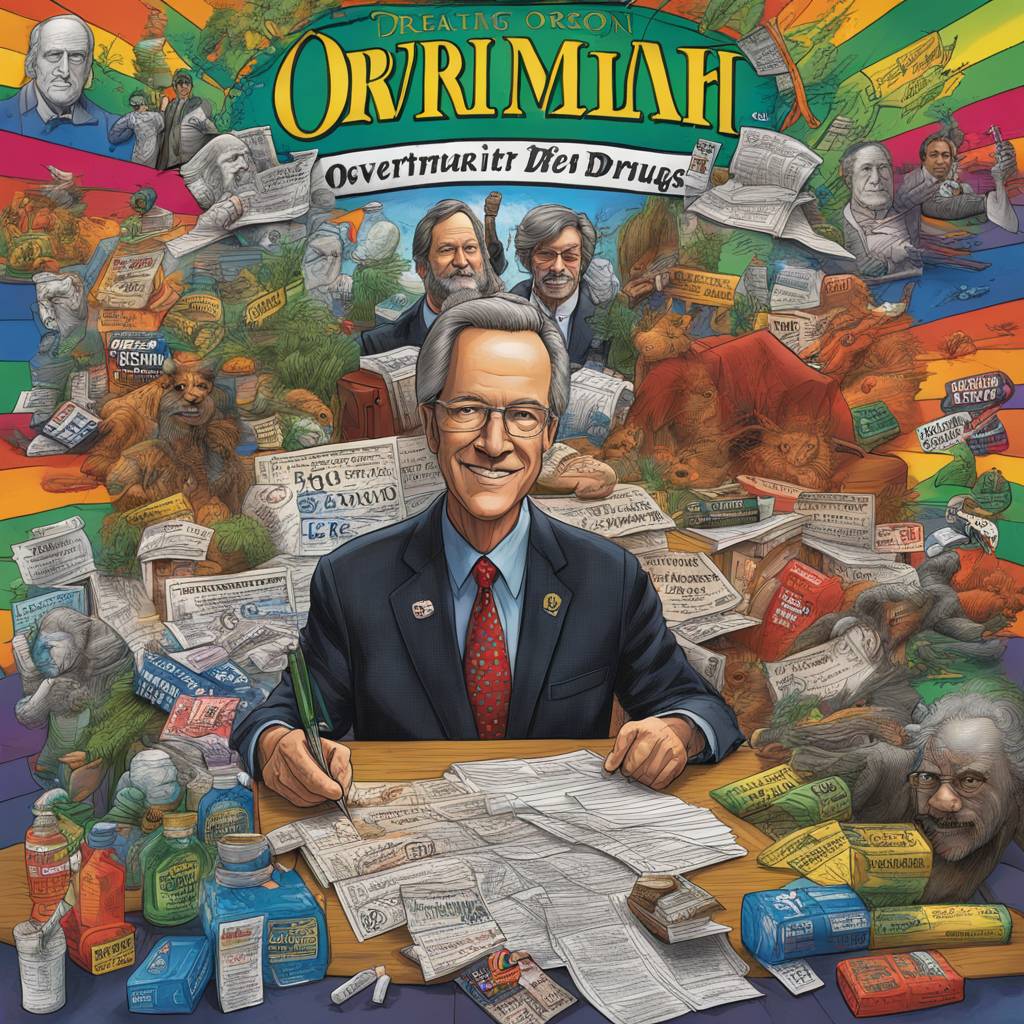Oregon Governor Tina Kotek signed legislation on Monday re-criminalizing the possession of certain drugs, reversing a 2020 voter ballot initiative that decriminalized the possession and personal use of all drugs. House Bill 4002, which received bipartisan support in the state legislature, allows offenders to face up to six months in jail or opt for drug treatment instead of criminal penalties. The new law will take effect on September 1, and aims to provide alternative pathways to incarceration for individuals in possession of small amounts of controlled substances.
Governor Kotek highlighted provisions in the new law that provide options for defendants to avoid jail time. These options include pre-arrest deflection, conditional discharge upon criminal justice interaction, and formal probation. Kotek stated that focusing on alternatives to incarceration can help reduce the collateral consequences of justice system involvement and address the racial and ethnic disparities that may result from the legislation. The move to re-criminalize drug possession comes in response to a fentanyl state of emergency declared in downtown Portland earlier in the year, as opioid deaths in Oregon have tripled between 2019 and 2022.
The increase in drug-related deaths, particularly those involving fentanyl, has prompted Oregon officials to re-evaluate their approach to drug policy. In 2020, Oregon voters approved Measure 110, which decriminalized various hard drugs such as fentanyl, heroin, cocaine, and methamphetamine. The law took effect in February 2021, but the recent legislation signed by Governor Kotek reverses portions of Measure 110, indicating a shift in the state’s stance on drug possession. This change reflects a growing concern over the impact of drug addiction on public health and safety, prompting lawmakers to reconsider policies aimed at reducing drug-related harm.
The decision to re-criminalize drug possession in Oregon comes as part of a broader effort to address the challenges posed by the rise in fentanyl use and drug-related fatalities. Governor Kotek’s focus on providing alternatives to incarceration for individuals in possession of controlled substances underscores a shift towards more holistic and harm-reduction approaches to drug policy. By offering avenues for drug treatment and diversion programs, the new law aims to balance the need for accountability with a recognition of the complexities of substance use disorders and their impact on communities.
As Oregon grapples with the devastating effects of the opioid crisis and the proliferation of dangerous synthetic drugs like fentanyl, policymakers are re-evaluating their strategies for addressing drug addiction and drug-related harm. The signing of House Bill 4002 reflects a shift towards a more nuanced and comprehensive approach to drug policy, one that seeks to address the root causes of addiction while also providing support and resources for individuals struggling with substance use. Moving forward, Oregon will need to continue to adapt and evolve its approach to drug policy in order to effectively respond to the ongoing challenges posed by drug addiction and overdose deaths.













